Already in 2013, the European Parliament and the European Council created a cross-EU body for out-of-court dispute resolution between consumers and entrepreneurs with Regulation 524/13. For this purpose, an online dispute resolution platform or OS platform for short was created – by Valentin Schulte Volkswirt & stud. iur at the law firm Dr. Thomas Schulte, Berlin.
EU Regulation 524/13
With this regulation, the European institutions pursue the purpose of disputes between consumers and businesses resulting from the EU-wide, online trade in goods or services to solve quickly and satisfactorily for both sides. This should result in increased confidence on the part of consumers and entrepreneurs in online trade in the EU single market. By analogy with the provisions of Section 13 of the German Civil Code (BGB), consumers are natural persons who conclude legal transactions for purposes that cannot be attributed to their professional or commercial activity. Analogous to the provisions of Section 14 of the German Civil Code, entrepreneurs are therefore either legal entities or natural persons who conclude legal transactions for purposes that can be attributed to their commercial activity. This classification is always dependent on the situation, i.e. the same natural person can be both a consumer and an entrepreneur in different situations.
Entrepreneurs are subject to special obligations that are intended to protect consumers
For this mediation between consumers and entrepreneurs – as described above – the ODR platform was created, which can be reached under the following link:
https://ec.europa.eu/consumers/odr/main/index.cfm?event=main.home.chooseLanguage
This platform offers consumers and also entrepreneurs the possibility of contacting the online dispute resolution service in the event of problems, which then either acts as a mediator or, if there is no willingness to talk, mediates the matter to other dispute resolution services, which settle the dispute with their own compromise decision. In practice, this now looks something like this: If an Italian citizen orders a cuckoo clock from a German online retailer and is not satisfied with the quality of the clock, he or she can contact the ODR office to discuss the matter with the retailer and, if necessary, find a solution. If both parties do not find an acceptable solution, the dispute will be referred to another arbitration board, which will decide on the facts of the case and make an arbitration proposal. This proposal is not binding, but can be accepted by the parties and thus become binding.
Warning received due to missing OS link?

Art. 14 I 1 & 2 of Regulation 524/2013 stipulates that entrepreneurs have the obligation to include the link to the ODR platform on their own website. Literally it says: „Traders established in the Union who enter into online sales contracts and online marketplaces established in the Union shall place a link to the ODR platform on their website. This link must be easily accessible to consumers.“ Easily accessible in this context means that the link must be embedded as a hyperlink on the website. If a user now clicks on this link, he will automatically be redirected to the ODR platform.
If this link is not provided by the entrepreneur in a clickable manner, the entrepreneur is behaving in an anti-competitive manner according to the statements of the Higher Regional Court of Hamm (decision of 03.08.2017 – 4 U 50/17). In accordance with Sections 8, 3a UWG (German Unfair Competition Act), this anti-competitive behavior gives rise to a claim for injunctive relief and removal on the part of the competitors, who can assert this with the aid of a warning notice. According to § 12 I 2 UWG, the resulting legal costs are to be reimbursed by the person issuing the warning to the person issuing the warning. Costs of up to 1,000€ or more can regularly arise here.
Although warnings due to a missing OS link have decreased in the past, which is due on the one hand to the tightening of the right to issue warnings, but also to the time gap between the entry into force of the regulation and the associated continuous adaptation of their own websites by the entrepreneurs, companies still fall into this trap today. Young companies in particular are affected by this, so that it is advisable to have one’s own website legally checked by a lawyer before launching it. In most cases this is cheaper than being warned and the money saved here can be invested more sensibly in the further development of the company’s own product.
V.i.S.d.P.:
Valentin Markus Schulte
Economist, stud. iur
Contact:
Law office Dr. Thomas Schulte
Malteserstrasse 170
12277 Berlin
Phone: +49 30 221922020
E-Mail: valentin.schulte@dr-schulte.de
The Kanzlei Dr. Schulte attorneys is successfully civil-legally since 1995 emphasis in the area of the Internet, Reputations- and competition right active. It represents country widely the interests of individual investors. Supplementing sender data with the Kanzleistandort find you in the imprint on the Internet side www.dr-schulte.de.
Press contact:
Dr. Schulte Attorney at Law
Malteserstrasse 170
12277 Berlin
Tel.: +49 30 22 19 220 20
Fax. +49 30 22 19 220 21
Email: dr.schulte@dr-schulte.de
https://www.dr-schulte.de







